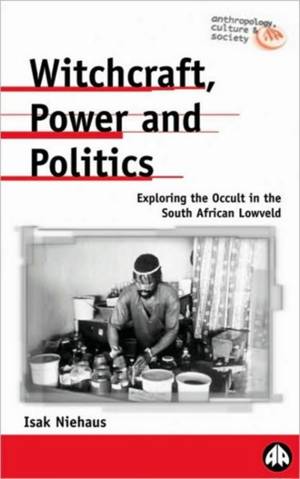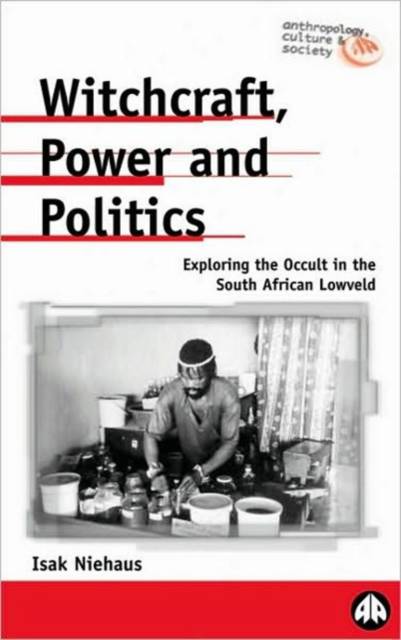
- Afhalen na 1 uur in een winkel met voorraad
- Gratis thuislevering in België vanaf € 30
- Ruim aanbod met 7 miljoen producten
- Afhalen na 1 uur in een winkel met voorraad
- Gratis thuislevering in België vanaf € 30
- Ruim aanbod met 7 miljoen producten
Zoeken
Witchcraft, Power and Politics
Exploring the Occult in the South African Lowveld
Isak Niehaus, Eliazaar Mohlala, Kally Shokaneo
€ 40,95
+ 81 punten
Omschrijving
This is an extraordinary account of witchcraft and witch-hunting in the modern world. A powerful ethnographic study of witch-hunting in 1980s South Africa - a period of rapid social change - this book demonstrates the extent to which witchcraft must be seen, not as a residue of 'traditional' culture but as part of a complex social drama which is deeply embedded in contemporary political and economic processes. Isak Niehaus provides the context for this fascinating study of witchcraft practices. He shows how witchcraft was politicised against the backdrop of the apartheid state, the liberation struggle and the establishment of the first post-apartheid regime, which all affected conceptions of witchcraft. Niehaus demonstrates how the ANC and other political groups used witchcraft beliefs to further their own agenda. He explores the increasingly conservative role of the chiefs and the Christian church. In the process, he reveals the fraught nature of intergenerational and gender relations. The result is a truly insightful and theoretically engaged account of a much-studied but frequently misunderstood practice.
Specificaties
Betrokkenen
- Auteur(s):
- Uitgeverij:
Inhoud
- Aantal bladzijden:
- 272
- Taal:
- Engels
- Reeks:
Eigenschappen
- Productcode (EAN):
- 9780745315584
- Verschijningsdatum:
- 1/05/2001
- Uitvoering:
- Paperback
- Formaat:
- Trade paperback (VS)
- Afmetingen:
- 138 mm x 216 mm
- Gewicht:
- 408 g

Alleen bij Standaard Boekhandel
+ 81 punten op je klantenkaart van Standaard Boekhandel
Beoordelingen
We publiceren alleen reviews die voldoen aan de voorwaarden voor reviews. Bekijk onze voorwaarden voor reviews.











